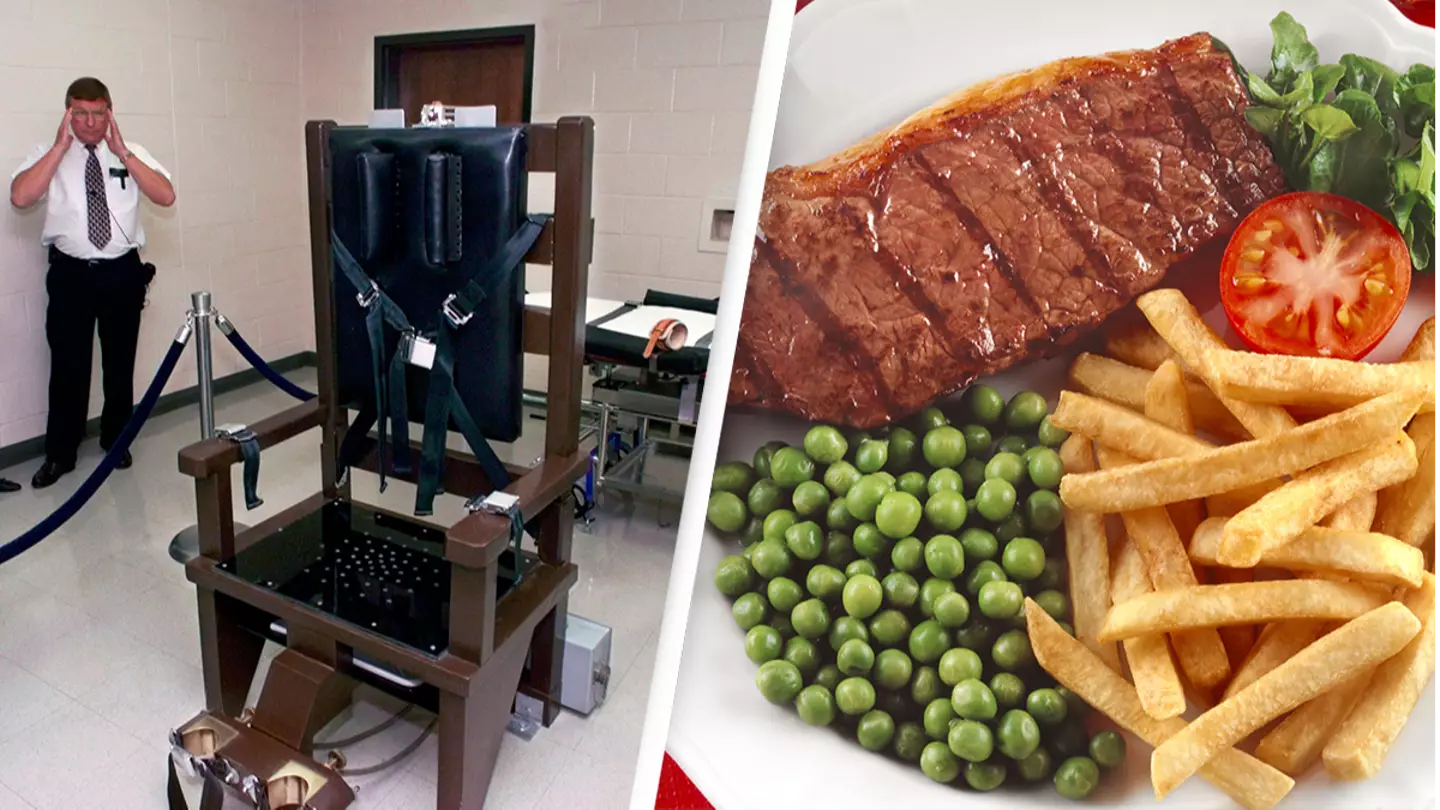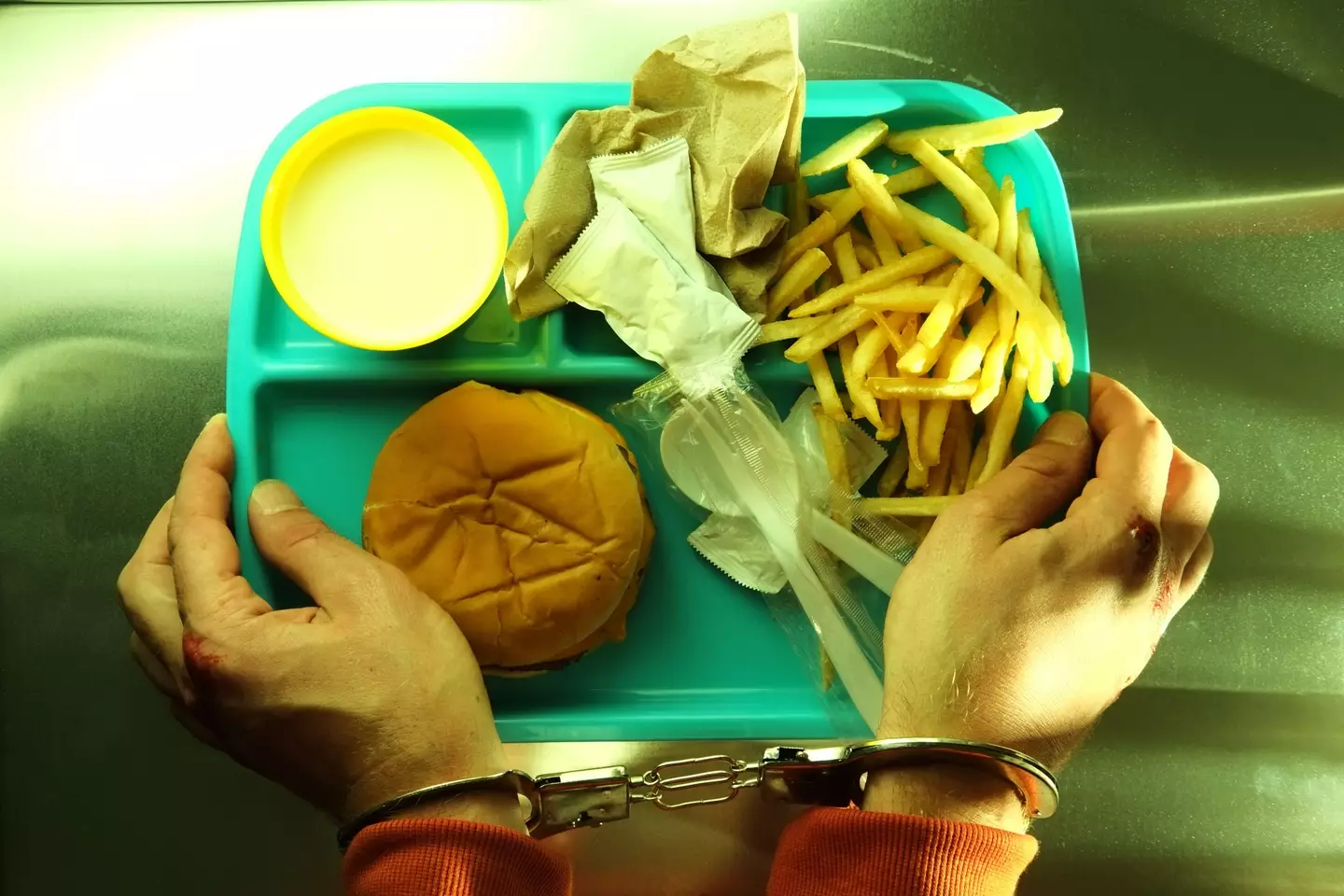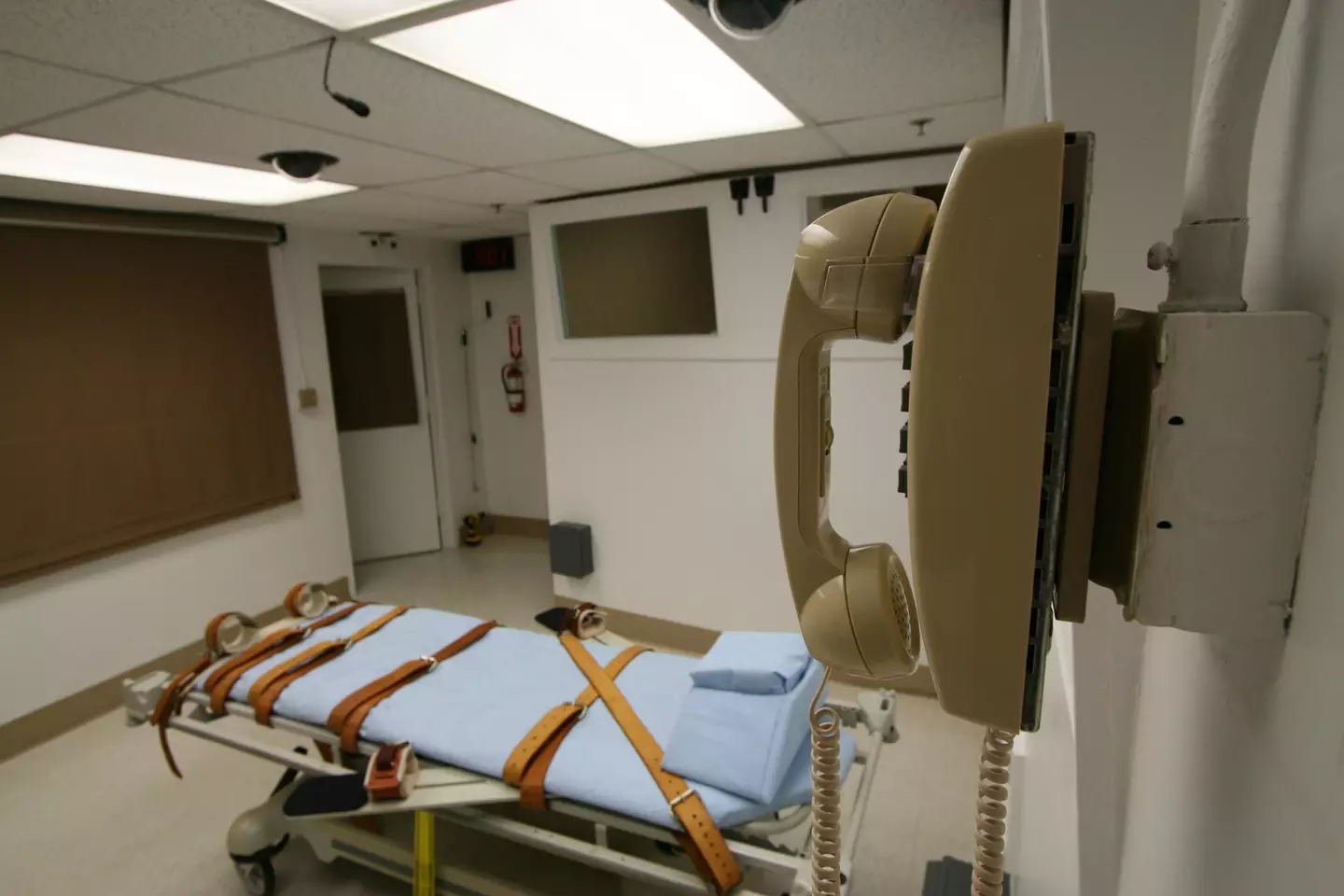
Topics: News
Last meals have become synonymous with the death penalty in the US, but not every prisoner who is handed the death penalty is entitled to one.
This is something that recently hit the headlines after John Henry Ramirez was executed without a last meal at the Huntsville State Penitentiary in Texas on Wednesday (5 October).
Unfortunately for Ramirez, who was executed via lethal injection for a 2004 stabbing and robbery, Texas ended the practice of giving inmates last meals back in 2011.

Advert
This was after one inmate gave an elaborate request that likely cost more than a pretty penny before refusing to eat a single bite of the feast.
Lawrence Brewer, a white supremacist, 44, ordered two steaks, a triple-meat cheeseburger, a cheese omelette, a large bowl of fried okra, three fajitas, a pint of ice cream and 0.45kg of barbecue meat for his last meal.
However, when he was presented with the food, he refused to eat it before he was ultimately executed via lethal injection on 21 September, 2011.
A Texas state senator contacted the Texas Department of Criminal Justice when news of the debacle became public knowledge and the practice of last meals was ended in the state the next day.
As reported by the BBC at the time, from then on, those facing death would receive the same food that all of the other prisoners were eating.

While it might look like last meals are given as an act of mercy to the prisoners, according to experts, the practice is done to humanise them in the eyes of the general public.
Jon Sheldon, a Virginia death penalty lawyer, said it is to bring home the fact that a person is going to die for their actions, and he said it's not uncommon for the food to go uneaten.
"I don't know anybody who has eaten the last meal," Sheldon said.
"In my experience, it is unlikely that someone is going to be hungry and is going to want a meal. It's either not ordered, or it's ordered and it's not eaten."
While it's typically assumed that people sentenced to death can have absolutely anything for their last meals, in reality, it does vary from state-to-state - if it's even an option.

People in Florida, for example, only have a budget of $40 to play with and the food they ask for needs to be available locally.
In Oklahoma, the budget is even less, coming in at just $15.
Meanwhile, those condemned to death in Louisiana have to have their last meals with a prison warden present.
While Texas, where Ramirez was recently executed, has come under fire not offering last meals, officials have stood by the decision for over a decade.
In 2011, State Senator John Whitmire said of Lawrence Brewer: "If you're fixing to execute someone under the laws of the state because of the hideous crime that someone has committed, I'm not looking to comfort him.
"He didn't give his victim any comfort or a choice of last meal."
If you have a story you want to tell, send it to UNILAD via [email protected]